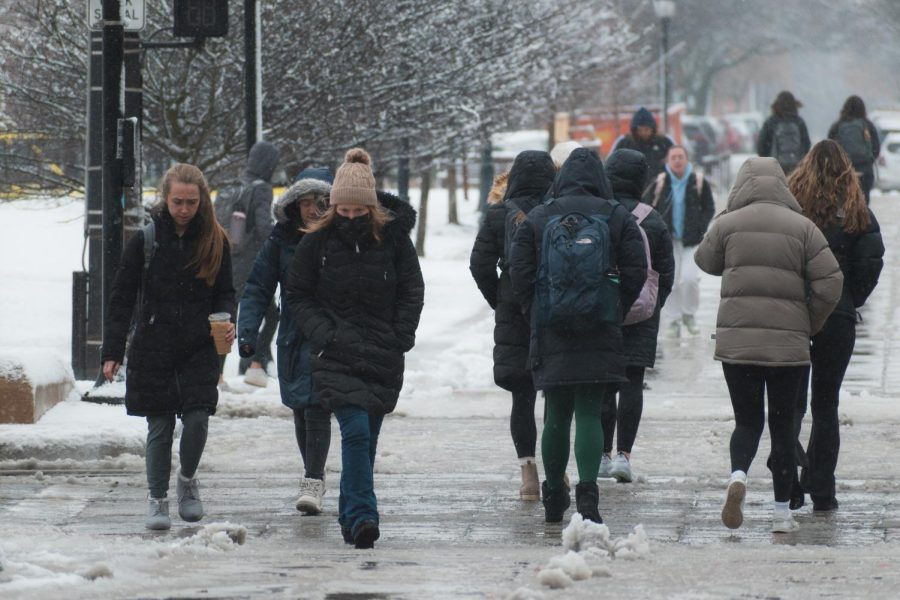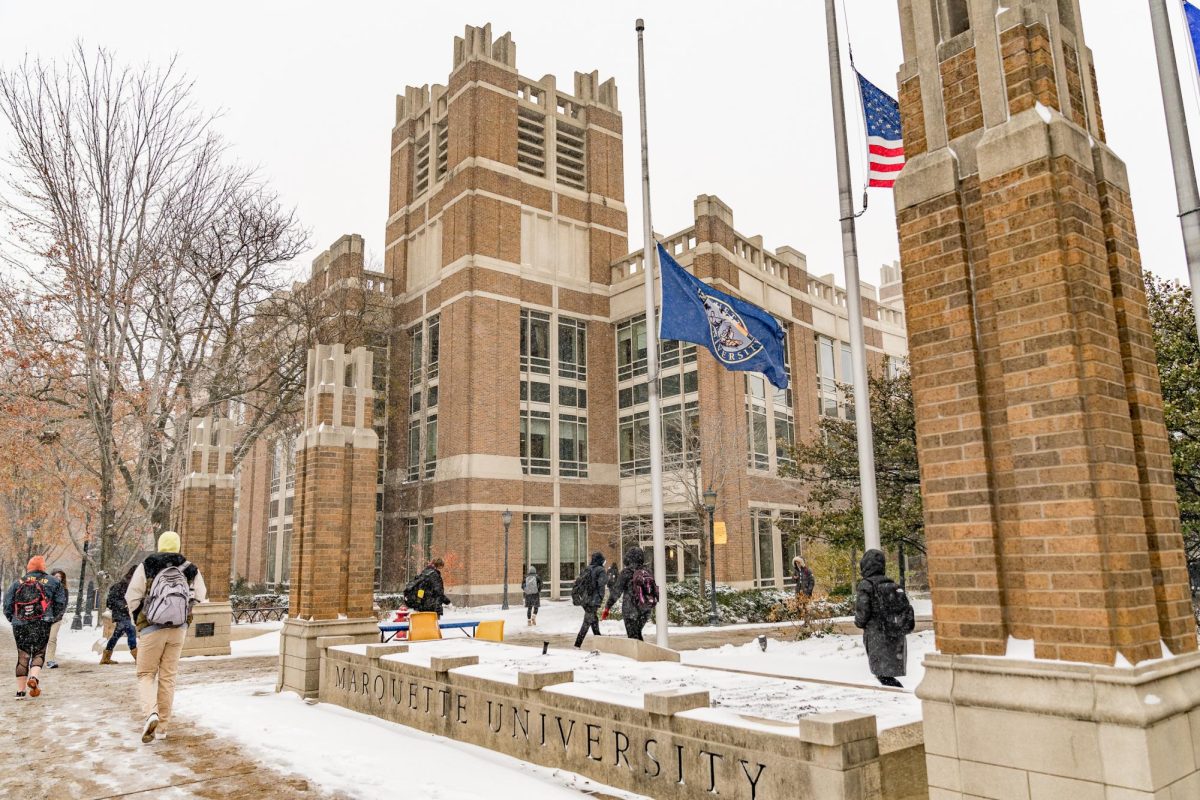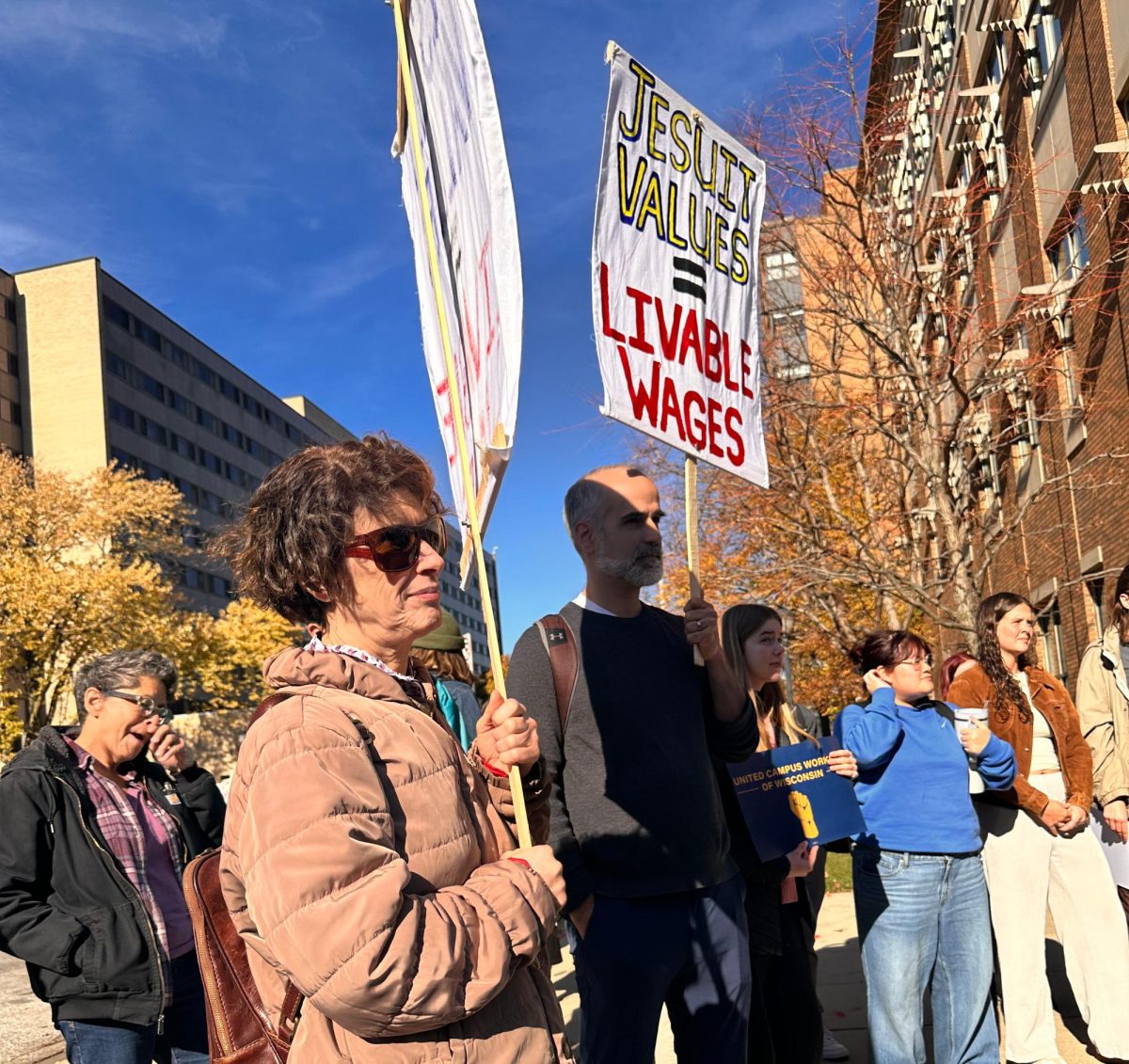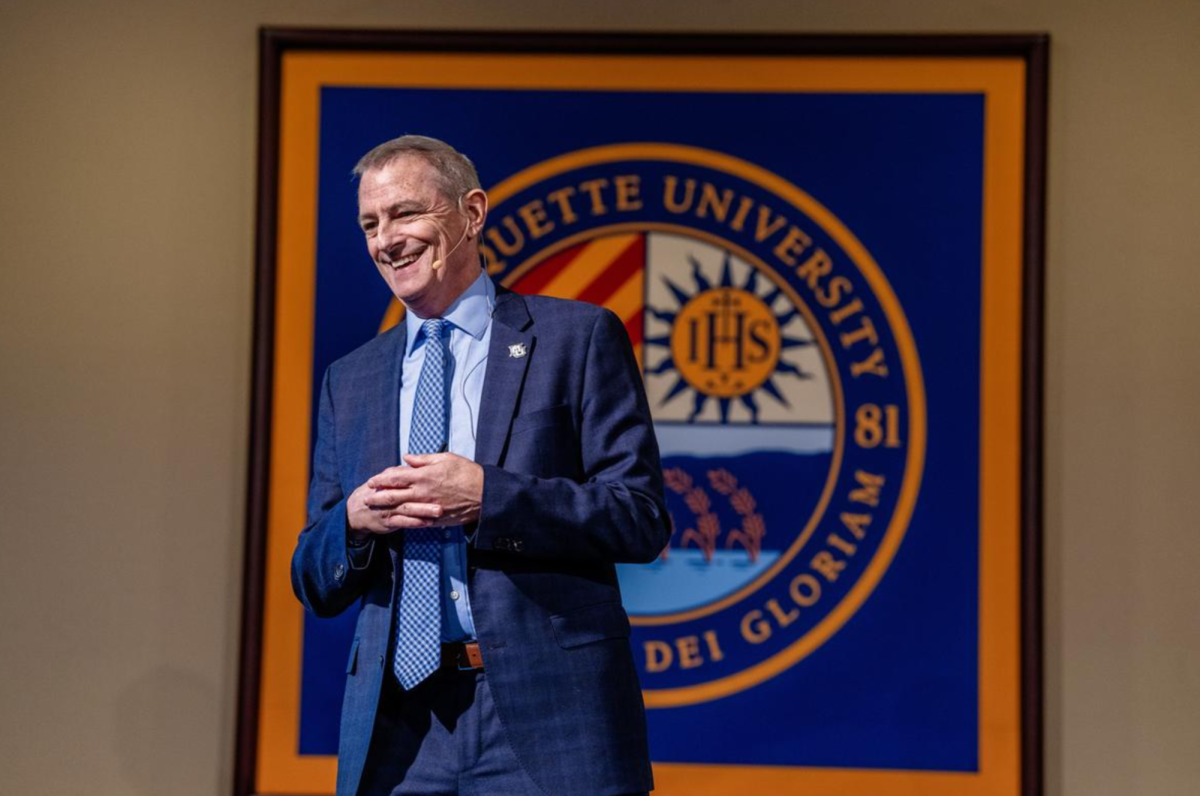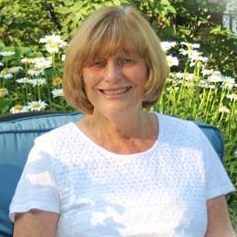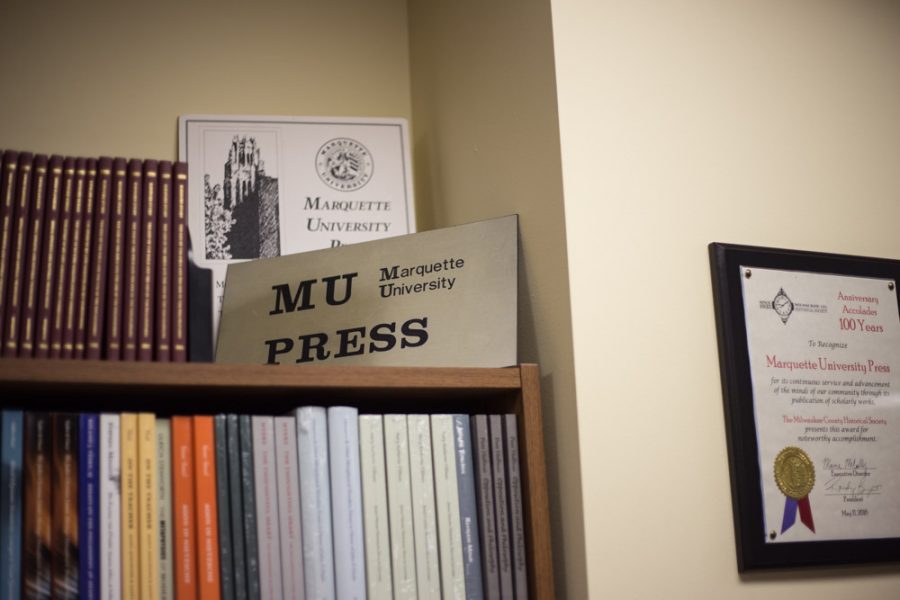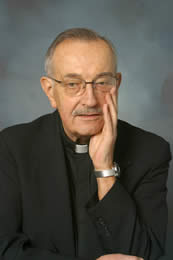As chair of Marquette’s Academic Senate, James South, a professor of philosophy, plays a key role in speaking for the university’s academics.
Ever since he was added to the university leadership council earlier this year, that role now includes speaking directly to University President the Rev. Scott Pilarz.
“It’s been good to be around the table and to have the opportunity to remind people of the experiences of faculty and students on the ground. It’s been very illuminating to see some of the bigger picture issues that Fr. Pilarz and the rest of the cabinet have to grasp and wrestle with,” South said. “I think the chair of Academic Senate’s role on the Leadership Council is really important just to give that faculty (and) student voice.”
The Academic Senate meets monthly and is made up of 29 faculty members, four deans and three elected undergraduate students from Marquette University Student Government, as well as Vice Provost of Undergraduate Programs and Teaching Gary Meyer, Vice Provost for Research Jeanne Hossenlopp and Provost John Pauly.
There are eight standing committees that report to the Executive Committee, co-chaired by both South and Pauly, according to the Statutes of the University Academic Senate, found on the university’s website.
“We take on issues from curricular programs, majors and graduate certificate programs,” South said. “We worry about issues that affect students in different ways like how students evaluate teaching, advising and campus life in general.”
South, who came to Marquette in 1995 after getting his doctorate from Duke University, has been chair of the Academic Senate since 2005.
This year South said the Senate has been working to include voices from across campus.
“Our task this year is reviewing the efficacy of the Academic Senate, where things have gone,” South said. “Everybody wants an engaged faculty and academic voice here at (the) university that represents faculty and students that help move Marquette in the direction that its population wants.”
He said this year the Senate has approved a peace studies major and other certificate programs.
South said the presence of MUSG, which sends nonvoting members to meetings, is helpful.
“The Academic Senate receives regularly various issues that emerge from MUSG, committees and governing bodies,” South said. “MUSG does a very good job in expressing concerns. We try to advance concerns to (the) extent we can. Concerns related to academics, clickers, evaluations, advising — those are issues that we discuss. We refer them to committees in order to develop proposals and motions and proceed accordingly.”
Joey Ciccone, a senior in the College of Arts & Sciences and an MUSG respresentative, said this is his second time on the Academic Senate.
“They do a lot of great work on issues pertinent to faculty members, but there is an area for growth on discussing issues that affect both faculty members and students, like advising, D2L usage and technology in the classroom,” Ciccone said in an email.
South urges students to ask and get involved in the process through MUSG or to contact members of the Academic Senate.
“The more concerns known through MUSG and us, the stronger the academic side to the university will be,” South said.
Overall, South said that his time on the Academic Senate has been a learning experience.
“Having been involved for many years at the university, the opportunity for me to bring experience and expand my horizon a bit while seeing a little how the bits of university fit together … (has) been very rewarding,” South said.

